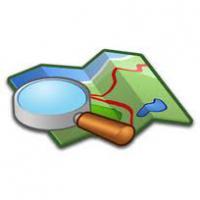
So you think you know the rules
Many chessplayers think they know all the rules, but being a chess arbiter involves more knowledge than people think. Now you have a chance to see if you know enough to referee chess contests in an online test. It doesn't cover everything, for example how to break up fistfights or handle furnitu which Ire or toilet disputes, all of which I've had to deal with in 4 decades of work as an arbiter. But it is a good start.
MULTIPLE CHOICE TEST FOR ARBITERS
The English Chess Federation has devised a system where an arbiter can take a Multiple Choice exam online independently. Currently it is free so that arbiters worldwide can inspect the system. The pass mark is 16/20. Each of the 20 questions has 5 answers. There are 102 questions in the bank so far. When the examinee logs on, he receives randomly 20 of the questions. The possible answers also come up randomly. Currently not everything is covered, for example tiebreaks as we have not agreed on the regulations. The student can take the tests as many times as he wishes. Immediately he has answered a question, he is told whether it was correct. After completing the test, he can find out what the correct answers are and sometimes why. If the test is taken 3 times, the student will have seen about 47% of the questions.
The system can be used as part of the FIDE Arbiters’ exam. Multiple choice never covers everything and there should also be a longer form test or tests. The system isn’t very convenient to asking questions on the application of the Swiss System. That is better done with practical examples. I noticed in Rumania they have refresher tests for established arbiters. This system could be used extremely effectively in such cases. It is a very useful teaching tool. People can repeat the exam several times and will find fresh material. If they pass the exam by learning all the correct answers, well they will have learnt a great deal of the theory of being an arbiter.
It is entirely deliberate that a few questions are difficult and people may disagree very occasionally with the answer given. That is to make it more interesting for the examiner. The questions will have to be changed every time the Laws are changed. Of course all arbiters’ exams are highly language dependent. It could be translated into foreign languages.
To access the system
1. www.certificateofmerit.org.uk
2. Click on register and do so.
3. Click on Take the COM test now.
4. Select role: student.
5. Continue.
6. Enter email address and password.
7. Continue.
8. Once confirmed click on Continue.
9. Take the COM test now.
10. Choose test level FIDE Arbiter.
11. Click on select level (there is only one).
12. Click on the diagram and it will appear bigger and the question number is shown.
You are now in the test. It is not time dependent, but 30 minutes should be ample. When you have completed the test, you are immediately told your score. To find out correct answers click on My Admin Panel. It would be easy to send a designed FIDE Certificate as an email attachment.
I strongly recommend this system be adopted by the Arbiters’ Commission. Somebody conducting a seminar would not have to use it, although it would save him some time. It ties in with our Certificate of Merit Scheme which you can also view.
Stewart Reuben, Ineternational Arbiter, July 2011






